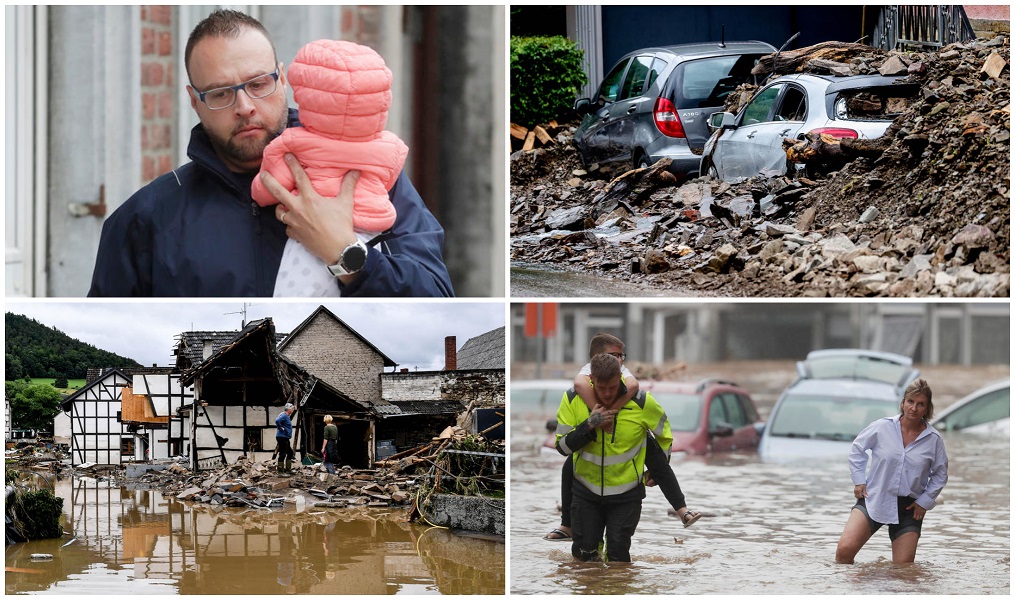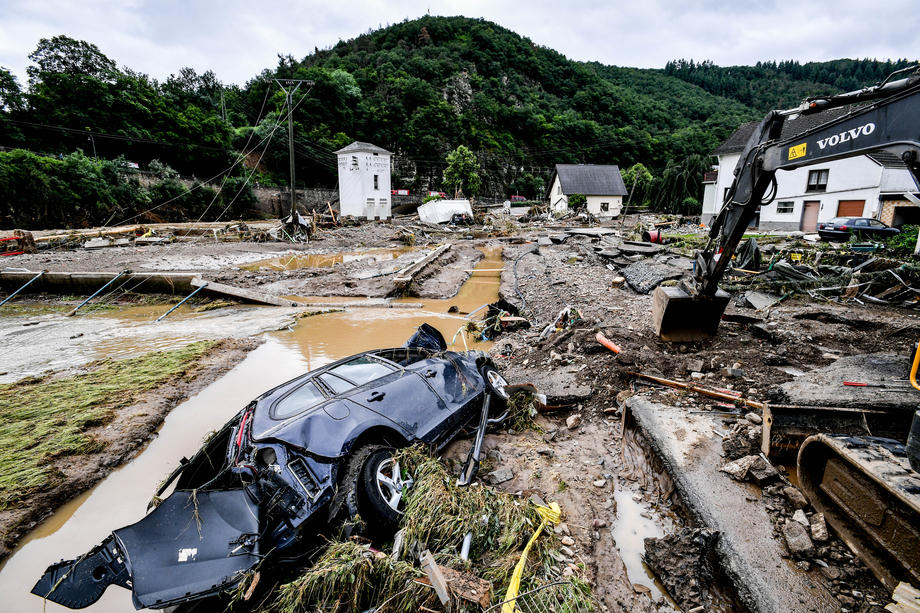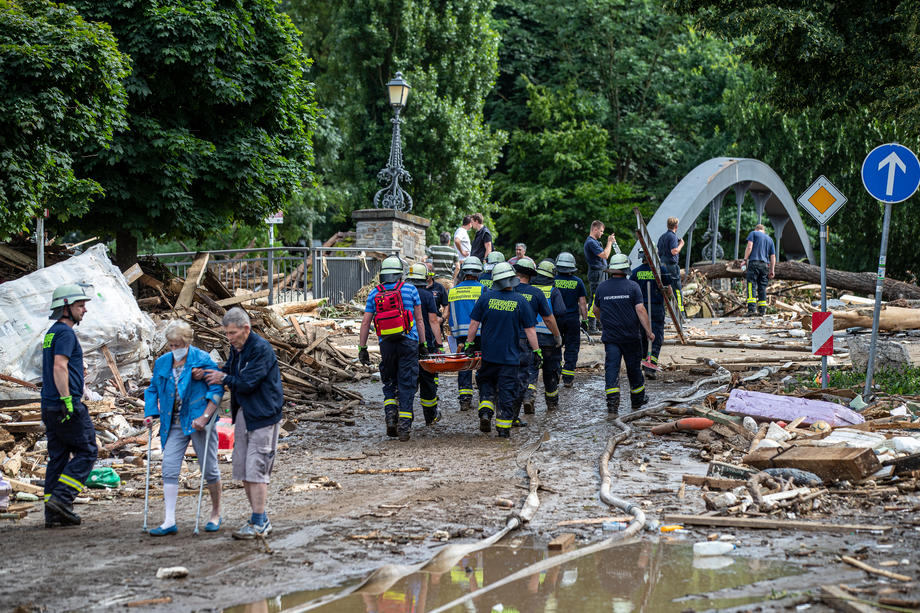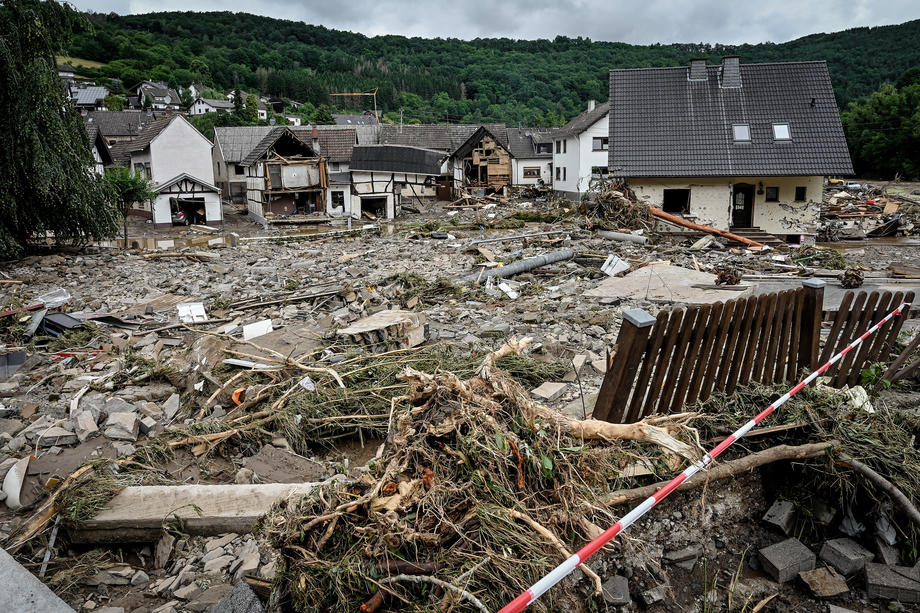Disaster that could have passed without human casualties - Germany evaded floods and pandemics

While in Germany The consequences of the great floods are being clarified and the dead and missing are being counted, the information has come to light that the authorities in this country were timely warned about the danger of great floods by the European meteorological institutions.
According to British flood expert Hannah Klock of the University of Reading, the European Flood Early Warning System (EFAS) warned Germany a few days before the floods began.
"The first hints that a catastrophe is being prepared in Germany were sent nine days before the rivers overflowed, and 24 hours before that, Germany received accurate information that there would be floods," Klock, a hydrology professor, told Time.
According to her, Germany was warned of that possibility 24 hours before the overflow of the river Ahr. The non-response in that area was paid with 100 human lives.

In addition, German authorities have received detailed diagrams of which areas are most at risk, she said.
"They received a warning and they should have understood that and warned the citizens," she said, adding that as a result of their incompetence the citizens had not been evacuated and had not been warned that things would go wrong.
She called the mistake a "monumental omission by the German authorities".

On the other hand, the authorities in Germany admitted that they were wrong not to warn the citizens in time about the danger of the flood.
"When it comes to disaster protection, we were just as prepared as we were for the pandemic," said Karl Lauterbach, a spokesman for Germany's ruling Social Democratic Party (SPD) for health.
In a statement to the daily Rheinische Post, he said Germany must be better prepared for such cases because in the future there will be "more pandemics and more disasters" like the one that struck Germany last week.

Authorities in Germany have also come under fire from Liberal Democratic Party (FDP) politician Michael Teirer, who has called for a "complete collapse of the warning system" and said German authorities had not warned of a possible spill in the days leading up to the heavy rains. on riverbeds.
"The timely warning from the meteorologists was not transmitted to the citizens and the authorities and the public media service also failed here," Teirer said.
The interior ministry of the state of North Rhine-Westphalia, one of the two worst-hit provinces, acknowledged that it had learned last Monday, two days before the floods, that "extreme storms" were brewing over the affected area.
The head of the Federal Office for Civil Protection and Disaster Relief, Armin Schuster, has defended himself against criticism, arguing that "alarm infrastructure" operates at the level of communication between federal and local governments.
"We have issued over 200 warnings through our applications and the media," Schuster said.
He also said that it was not possible to say exactly where the rivers could overflow.
Schuster called for the re-introduction of a siren network in the alarm system, which would also work in the event that, as was the case last week, mobile telecommunications networks fail.
So far, at least 189 people have been killed in floods in western Europe, and the fate of about 170 is still unknown. Tens of thousands of people have fled their homes, and many are still without electricity or running water.
For the time being, it is certain for the authorities that the number of victims will increase and it remains a challenge to reach the victims who are in inaccessible terrain where the police cannot reach because the water has not been withdrawn, and the identification of the victims is a problem.
The floods were caused by record rainfall, which first hit parts of West Germany and then neighboring Belgium and the Netherlands. Several levels in the south of the Netherlands are still being evacuated after the Mas River rose on Saturday to levels not seen in 10 years. In the town of Wenlu, next to the river alone, 000 people had to flee their homes.


